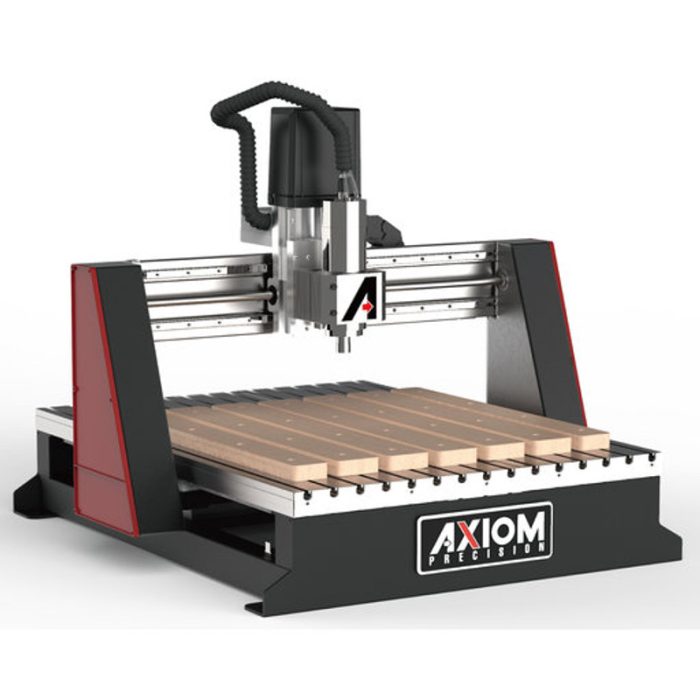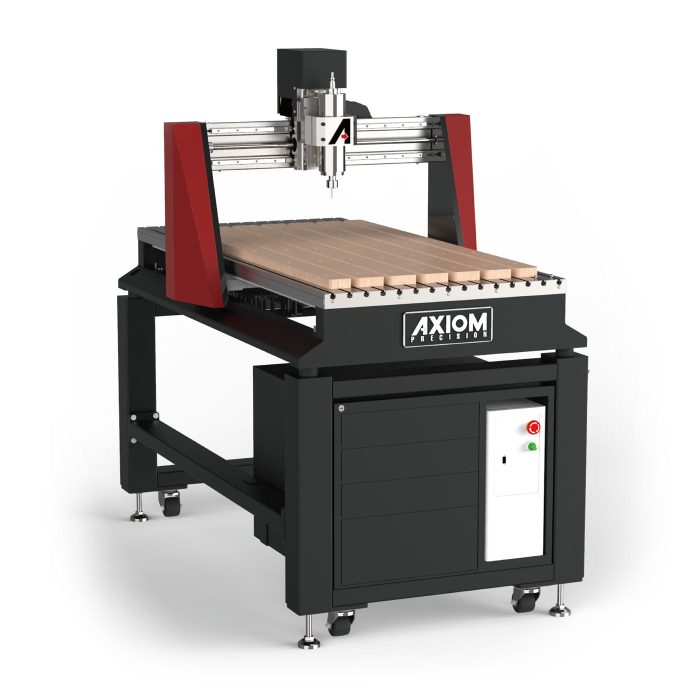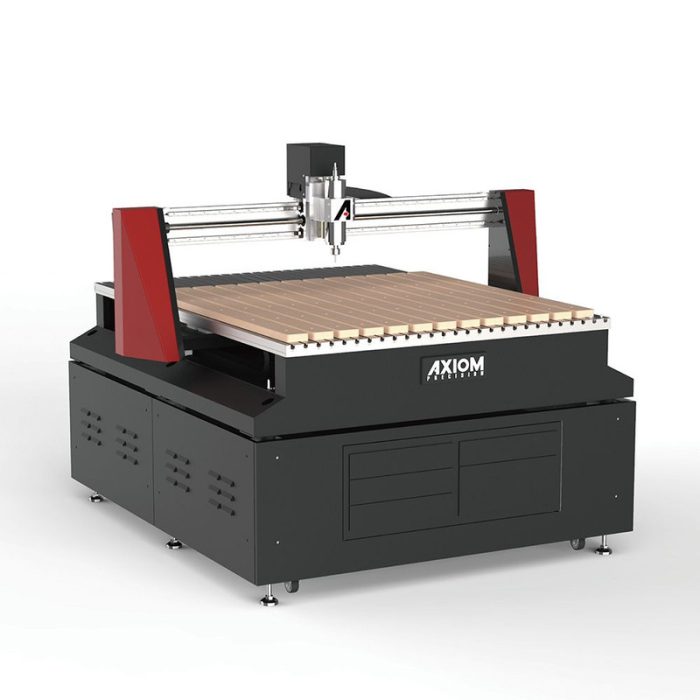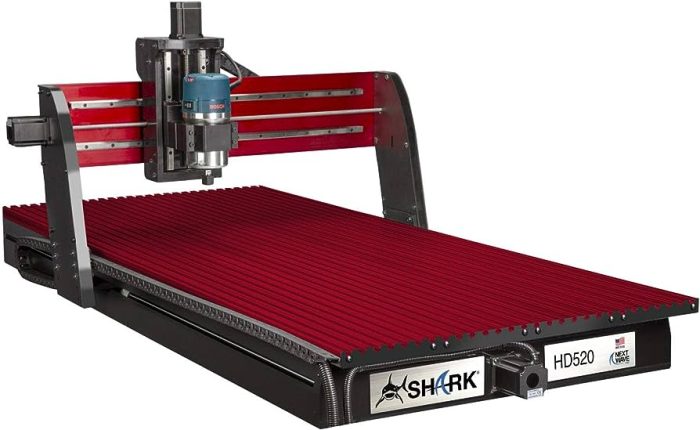5 things to consider when buying a CNC machine for your shop!
So what is the best subcompact car to buy??? Hey wait, I thought we were talking about CNC machines here, Steve?
Stick with me…….
I am sure we would all agree that this question is impossible to answer in itself. After all the answer depends on what is important to you.
Is it:
- Price?
- Leg room?
- Gas mileage?
- Ride?
- Power?
- Head room?
- Luggage space?
- Resale value?
- Looks?
- A combination of some of the above
………the list goes on and on.
When considering adding a CNC to your woodworking experience the answer is actually even more difficult. If you already own a car then you have some ideas as to what your priorities are in terms of a new vehicle. If you are dipping your toes into the CNC pool for the first time, then, in some cases, you are not even sure of the questions that you should ask.
Over the years, Jeremy and I have had the honour of working with thousands of new CNC’ers and have helped them navigate the uncharted waters of the “sea of CNC” (cute, eh?).
We thought a little guidance for those of you that are thinking about journeying down this river might be helpful. So strap on your life jacket, fasten your seat belt and let’s dive in! (OK enough of the water references!!!!!)

WHERE IS IT BUILT?
We get this question quite a bit. We have represented machines built in North America as well as machines imported from other countries, namely Taiwan.
If I am being honest, I was extremely sceptical about representing machinery built on the other side of the world. I am old enough to remember the introduction of foreign cars into North America in the 70’s (yes I AM that old!). While the early pioneers did struggle with quality issues it did not take long before foreign cars where equalling and, in some cases, exceeding the quality of vehicles we were building in Detroit and other automotive towns and cities.
After having the opportunity to evaluate the imported CNC machines that we were representing, I quickly realized that my narrow view of the world needed to change. Not that they did everything right. Far from it. But the combination of their manufacturing capabilities and our understanding of the North American market helped us to build a product we could trust and be proud to represent.
So the takeaway here is this. I believe that the “country of origin” should not be the game breaker when it comes to deciding what machine best suits your needs. Evaluating your options based on other criteria may help you find a better fit for your shop.



SIZE MATTERS!
I know that this states the obvious but the one thing you cannot change about your CNC machine, once you own it, is the X,Y and Z axis limitation (unless you build your own in which case, why are you reading this article??). You can add accessories like a laser head, rotary axis, clamps and hold downs, fixtures, a variety of tool options but the choice of size has to be made at the time of the purchase.
I would say that at least 50% of the inquiries we get for a machine for a small shop or school request our smallest machine bed size, which happens to be 24” x 24” with the Axiom product line. In almost all cases, the current projects the new CNC’er is considering will fit that size. Here is the problem. After you introduce automation to your shop, like a CNC or a CO2 laser, your business model often changes.
When considering what size machine best suits your needs you do need a bit of a crystal ball. Think about your business, with a CNC in 2-5 years. If you think about that it can change your perspective on what size machine will meet your needs.
Now that said, budget does have to factor in here (yup, you do have to pay for one of these bad boys!). In my experience upgrading in size from, say a 24” x 24” table size to a 24” x 36” or 24” x 48” is a nominal upgrade, relative to the cost of the machine itself. That said moving from there to a 48” X 96” machine is a huge jump in cost.
Of course, they do need to fit in the shop so that has to be a consideration as well.
The takeaway……spend some time considering the additional cost versus the ability for your new machine to expand as your business opportunities grow.


ENTRY LEVEL CNC vs INDUSTRIAL GRADE CNC
Since 2015, when Jeremy and I launched the Iconic Series of CNC machines, we have made a conscious choice to not represent, what I would refer to as, an entry level machine. Based on that you would believe that I would be bullish on the idea that everyone should invest in a high quality, industrial grade machine. Well, I guess overall it’s true but this is not always the case.
Let me explain…
There is definitely a host of reasons why some CNC machines sell for a few hundred dollars while others, seemingly able to do the same thing can be in the tens of thousands. I would like to unpack some of this if I may.
Looking for a CNC can be a mind-numbing experience. CNC nerds (and I use the term with the deepest respect as a non-nerd) will talk about positional accuracy, spindle horsepower, servo motors v stepper motors, materials of construction (plastic v aluminum v welded steel), wireless connectivity, PC based controllers v DSP (handheld) controllers, etc. Are these important? Of course they are.
In the end, there are two main factors to consider when considering the purchase of your CNC machine.
What will you use the machine for?
If you need to drive to Walmart to pick up milk and bread, you don’t need a 3/4 ton, 4 wheel drive, 400 HP, Ford F150 to do so. Heck if the weather is nice you could ride your bicycle!
The point is the biggest factor in determining what machine to add to your shop is what you plan to use it for. If your plan is to use a CNC to make a few signs or personalize a few cutting boards or charcuterie boards for gifts, the truth is either an entry level machine or a more industrial model will likely get you where you want to go. Most small and medium format machines are using the same software so the learning curve really is about the same. Truthfully, most of our customers start their CNC journey exactly like this.
But here is where the game changes…..
If you believe that this is just the beginning of your CNC journey and you want to expand your use of the machine into 3D work, or higher volume, or larger, more complex projects, then the better option might be to consider a more industrial grade machine. Check out our Axiom Precision CNC machines. This is a shining example of a professional grade machine that can grow along with your business.
The difference between a machine of this calibre and an entry level machine would be:
- High frequency spindle vs a base mount router. Far greater performance, high torque and whisper quiet.
- Welded steel frame construction (Pro and Elite series)
- Optional laser engraving attachment (a game changer)
- Optional rotary axis (Pro and Elite series)
- Prismatic guides and ball screws on all axis for optimal accuracy and performance
- Lifetime support on both software and machine (many manufacturers only support the machine, software challenges are your own problem)
Budget: What do you feel is affordable for you and your family?
To be frank, you can’t buy a C Class Mercedes on a Kia Rio budget. The challenge is always finding a machine that meets your short and long term needs without breaking the bank.
We spend lots of time communicating with potential customers discussing their needs, goals, and budget and trying to find a machine solution that fits them all. We even explore various financing options in some cases. If you are going to invest in a CNC machine look for a partner, not a vendor. Lots of companies are happy to sell you a machine. Not all of them are prepared to invest time in making sure it is the right fit for you.

SUPPORT, SUPPORT, SUPPORT!
Since I said it three times it must be important right?
In my opinion, the most important part of a purchase of a CNC is what happens after the machine is in your shop. I eluded to this earlier. Many manufacturers/distributors of this type of technology (CNC, lasers, 3D printers, etc) will provide stellar support on the machine which is awesome. The problem, ultimately, is that 90% of the support calls we receive on a day to day basis are not machine related but software design issues.
Over the past 15 years, Jeremy and I have always offered lifetime support on both software and machine. This means customers can send design files to us for analysis for as long as they own their machine. We even transfer that support if it is sold. While a huge challenge, it has been the single most important decision we ever made and, in my opinion, the number one reason we have enjoyed success in this industry (and not my charm and rapier whit….go figure).
We would love to sell everyone on the planet looking for a CNC a machine but, hey, let’s be real, that’s unlikely. If you are considering other options be sure that you are confident in the track record of support from the company you are considering.

TRUST YOUR GUT!
Don’t be swayed by a deeply discounted price (there is usually a reason) or a slick presentation. Do your research. Check reviews. Ask for local references. In the end, you should get a feel for the companies you are considering and your sense of trust, their support record and industry reputation should take priority over a bunch of data on a spec sheet.
SUMMARY!
For over 15 years, Jeremy and I have had the privilege of journeying with thousands of hobbyists, enthusiasts, entrepreneurs, small businesses and educators and have done all we can to help them make the purchase of a CNC machine both profitable as well as enjoyable (emphasis on the later). It has been an incredibly rewarding experience. It would be our pleasure to help you on yours.
